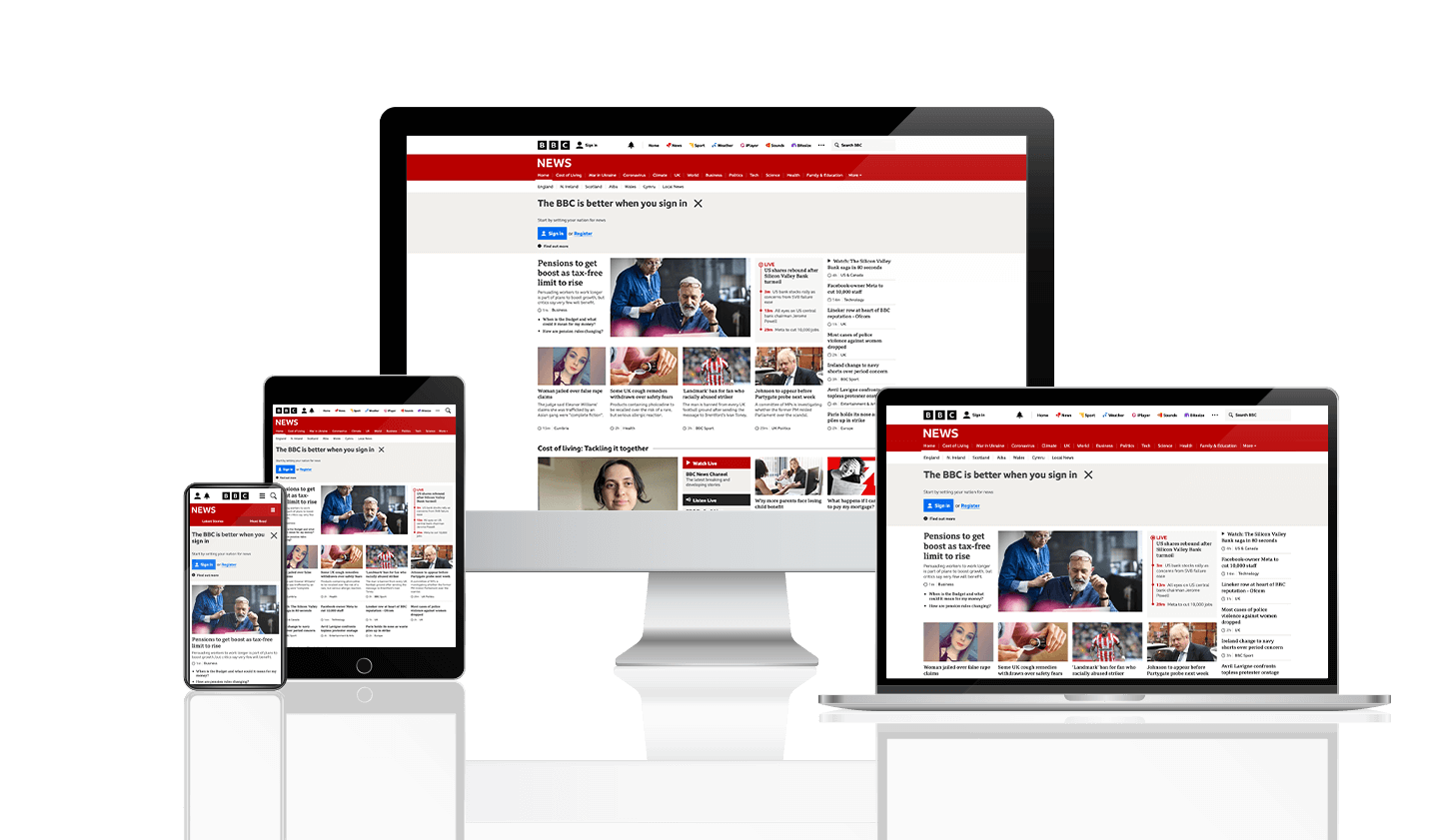The Definitive Handbook to Understanding stnews.live Like a Pro
The Significance of Fact-Checking in the Globe of News Online
The frequency of false information in today's on-line news landscape has actually reached worrying degrees. Fact-checking companies play an essential duty in combating this fad. They verify cases and boost the reliability of journalism. The efficiency of these companies usually hinges on their techniques and public perception. As audiences browse this intricate setting, the effects of their findings may shape the future of news usage and trust. What does this mean for the stability of details relocating forward?

The Surge of Misinformation in the Digital Age
How has the arrival of electronic modern technology added to the spread of misinformation? The fast development of the internet and social networks platforms has assisted in the dissemination of details at an unmatched rate. Users can share posts, videos, and opinions with a mere click, commonly without validating the content's precision. Formulas focus on thrilling or emotionally billed material, bring about an expansion of deceptive stories that record focus.
Additionally, the anonymity afforded by electronic systems permits people to spread false information without accountability (stnews.live). False information prospers in echo chambers, where customers are revealed largely to point of views that strengthen their beliefs, even more lodging frauds. The saturation of info can overwhelm individuals, making it testing to determine reliable sources from unreliable ones. Misinformation has actually ended up being a pervasive concern in the electronic landscape, influencing public opinion and depend on in reputable news resources.
The Role of Fact-Checking Organizations
Fact-checking organizations play a necessary function in boosting the reliability of journalism by validating claims made in news reports. Their initiatives are crucial in combating false information, making sure that precise details dominates in the electronic landscape. By holding media outlets liable, these organizations add substantially to informed public discussion.
Enhancing Trustworthiness in Journalism
While misinformation proliferates in the electronic age, fact-checking organizations play a crucial function in improving the reliability of journalism. These organizations thoroughly verify claims made in news write-ups, public declarations, and social media articles, ensuring that information shared to the public is precise and reliable. By supplying independent evaluations, they function as a vital source for reporters, assisting them keep high standards of stability. On top of that, their efforts advertise transparency in media, cultivating public depend on. As audiences come to be increasingly discerning, the existence of credible fact-checking entities can identify trusted news sources from those that may spread out falsehoods. Ultimately, the commitment of fact-checking companies to maintain truthfulness is important for the health of democratic discussion.
Combating Misinformation Efficiently
As misinformation proceeds to spread rapidly throughout electronic systems, the duty of fact-checking organizations comes to be significantly critical in the battle for accurate info. These organizations work as guard dogs, looking at cases made by public numbers and media electrical outlets to assure accountability. By using strenuous study methods and expert analysis, they validate facts and clarify deceptive narratives. Their findings are disseminated with various networks, informing the general public and promoting vital thinking. Additionally, partnerships with social networks systems enhance their reach, enabling timely flagging of false details. As digital literacy grows, the influence of fact-checking companies is necessary in equipping target markets to discern reality from fraud, inevitably contributing to a much more informed society.
How Misinformation Affects Public Understanding
False information greatly threatens trust fund in media, leading target markets to question the reputation of news sources. Consequently, people commonly move towards outlets that strengthen their current beliefs, contributing to the polarization of point of views. This dynamic produces a fragmented information landscape, where shared understanding ends up being progressively difficult to attain.
Trust in Media

Depend on in media has become increasingly breakable in the digital age, where the rapid spread of incorrect information can skew public understanding. As misinformation multiplies across social media and on-line platforms, audiences often locate it testing to recognize credible sources from unreliable ones. This unpredictability promotes suspicion, leading lots of individuals to examine the motives behind news reporting. Subsequently, trust in developed media outlets has lessened, as customers increasingly transform to different resources that might do not have extensive content criteria. This erosion of count on not only affects specific ideas however likewise weakens the collective capacity to involve in notified conversations. Eventually, the stability of journalism goes to stake, highlighting the critical requirement for efficient fact-checking to recover confidence in the media landscape.

Polarization of Point of views
The get redirected here increasing apprehension towards traditional media has added to an expanding polarization of opinions among the general public. Misinformation, typically disseminated through social media sites and on-line systems, plays a substantial duty fit distinctive ideological splits. Individuals regularly seek information that aligns with their pre-existing beliefs, strengthening their perspectives while dismissing opposing perspectives. This resemble chamber effect intensifies divisions, bring about a fragmented public discussion where consensus comes to be progressively evasive. In addition, sensationalized narratives thrive in this atmosphere, additionally skewing public understanding and fostering distrust in legitimate resources. As polarization escalates, the need for efficient fact-checking ends up being extremely important to connect spaces and promote informed discussions, inevitably making certain an extra cohesive society efficient in navigating intricate problems.
Methods for Reliable Fact-Checking
Effective fact-checking depends on a systematic approach that includes thorough study, verification of resources, and crucial analysis of insurance claims. A fundamental technique is cross-referencing information from numerous credible resources to verify its accuracy. Fact-checkers commonly make use of specialized data sources and archives to map the origin of certain statements, ensuring that the reported details lines up with recorded evidence.
An additional important method includes looking at the context in which insurance claims are presented. Deceptive information can emerge from out-of-context quotations or selective data usage. By analyzing the wider narrative, fact-checkers can determine possible biases or false impressions.
Moreover, involving with specialists in pertinent fields can provide quality and understanding that boosts the fact-checking procedure. This collaboration can reveal subtleties that laypeople may overlook - stnews.live. Eventually, a regimented approach integrating these methods fosters an extra educated public, boosting the integrity of information shared in the digital age
The Impact of Social Media on News Usage
How has social networks transformed the way people take in news? The introduction of systems like Facebook, Twitter, and Instagram has significantly altered news intake patterns. News is currently disseminated rapidly, enabling individuals to accessibility real-time updates and engage with web content via likes, shares, and comments. This immediacy has actually fostered a preference for bite-sized information, usually at the cost you can find out more of thorough evaluation.
Social media enables individualized news feeds, where algorithms curate material based on user preferences, developing echo chambers that might limit exposure to diverse point of views. The role of typical news electrical outlets has Visit Your URL diminished as individuals increasingly depend on peer referrals and trending subjects. Subsequently, the credibility of info is commonly jeopardized, as sensationalism can eclipse factual coverage. In general, social media sites has actually improved news consumption, stressing rate and customization while testing the standards of journalistic stability.
Empowering Audiences to Determine Trusted Sources

Additionally, checking out the authorship and business history of newspaper article can reveal possible predispositions. Cross-referencing info throughout numerous trusted electrical outlets even more enhances the verification process. Utilizing electronic devices, such as internet browser expansions that rank the reputation of internet sites, can additionally assist in identifying reliable info. By actively engaging with these sources and cultivating an essential state of mind, target markets can better equip themselves to determine trusted news resources, inevitably promoting an extra educated culture amidst the complexities these days's media atmosphere.
The Future of Journalism and Fact-Checking
As the media landscape advances, the future of journalism and fact-checking deals with both tests and opportunities. The surge of digital systems has equalized details circulation, allowing diverse voices to emerge. This has likewise led to the spreading of false information, requiring durable fact-checking systems. Journalists will progressively count on innovation, consisting of AI tools, to validate realities quickly and successfully.
Partnership in between wire service and fact-checking entities is prepared for to enhance trustworthiness and openness. Additionally, audience engagement will play an important duty, as informed viewers become considerable companions in recognizing trustworthy content.
The need for responsibility and precision is most likely to grow, pushing reporters to maintain high criteria in their coverage. Ultimately, the future of journalism may depend upon its capacity to adapt to technical improvements while preserving journalistic stability, making sure that fact-checking remains a cornerstone of reputable news.
Regularly Asked Concerns
How Can I Report Misinformation I Come Across Online?
To report misinformation run into online, people can utilize platform-specific coverage devices, provide clear evidence, and share the details with fact-checking companies. Involving with neighborhood conversations can also help raise awareness about the misinformation.
What Prevail Signs of False Information in News Articles?
Typical signs of misinformation in newspaper article include marvelous headlines, lack of credible resources, psychological language, irregular truths, and absence of author qualifications. Visitors must critically examine web content for these indications to recognize accuracy.
Exactly How Do Fact-Checkers Confirm Resources?
Fact-checkers verify sources by cross-referencing information with qualified databases, consulting experts, and examining the original context of cases. They likewise evaluate the reliability of the sources, making certain exact and reliable information for public intake.
What Legal Actions Can Be Taken Against Misinformation?
Lawful activities versus false information might consist of vilification legal actions, cease-and-desist orders, and regulatory penalties. Targets can look for redress via civil courts, while some jurisdictions impose penalties or permissions on systems sharing false information.
Are There Apps for Fact-Checking News On-The-Go?
Numerous applications exist for fact-checking news on-the-go, including Snopes, FactCheck.org, and PolitiFact. These applications assist customers verify cases quickly, promoting informed decision-making and fostering a more discerning technique to consuming news in real-time.